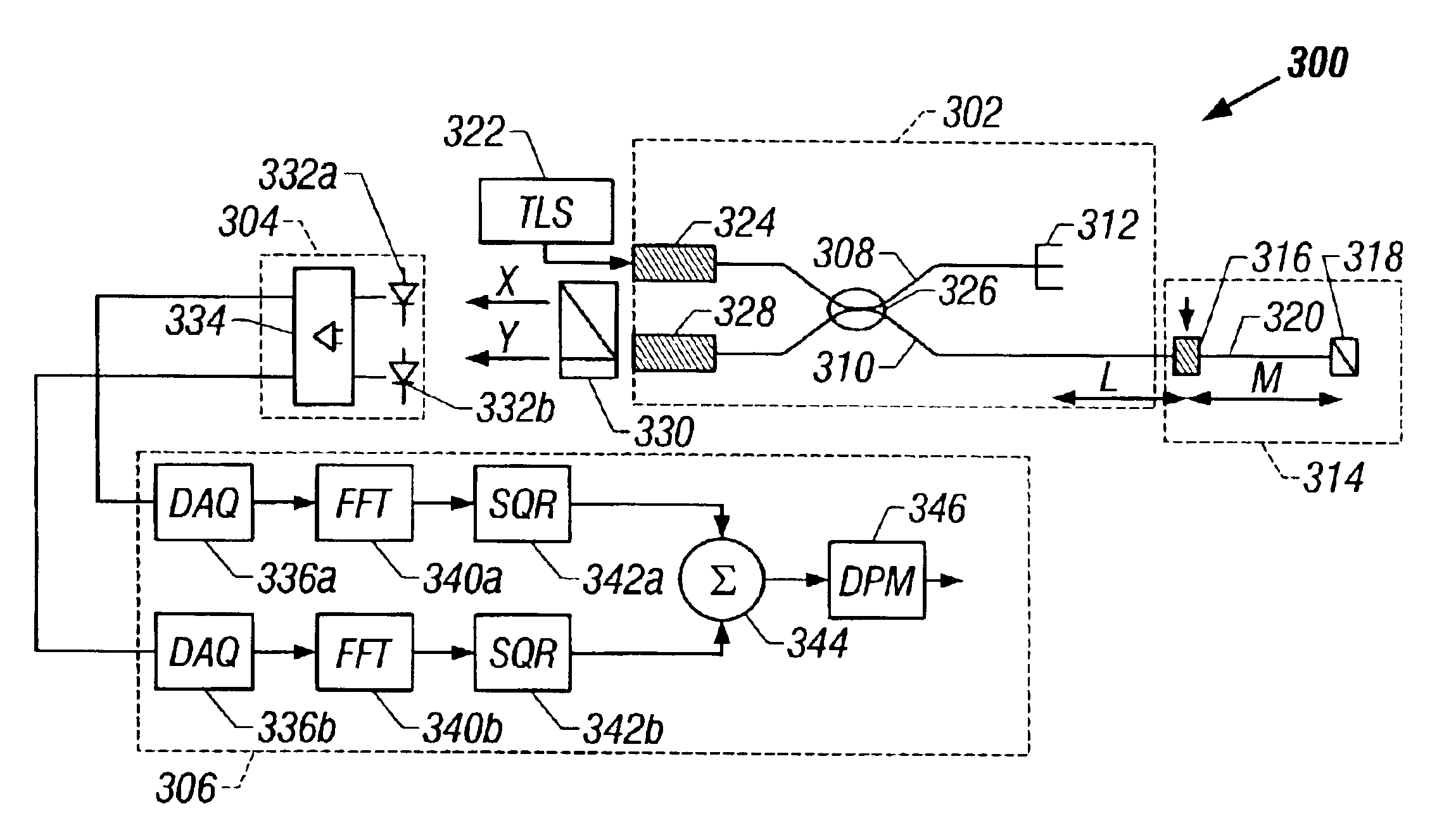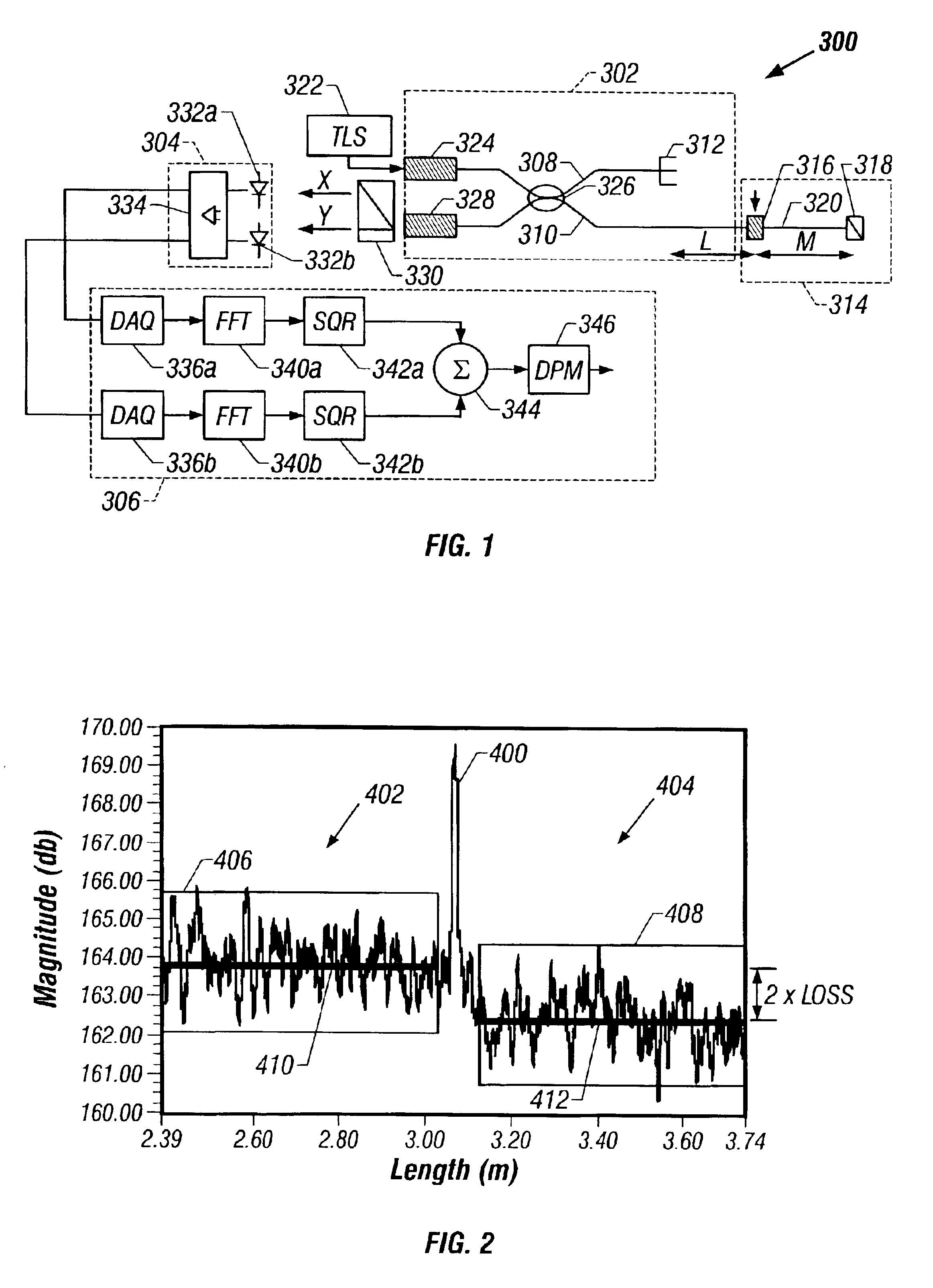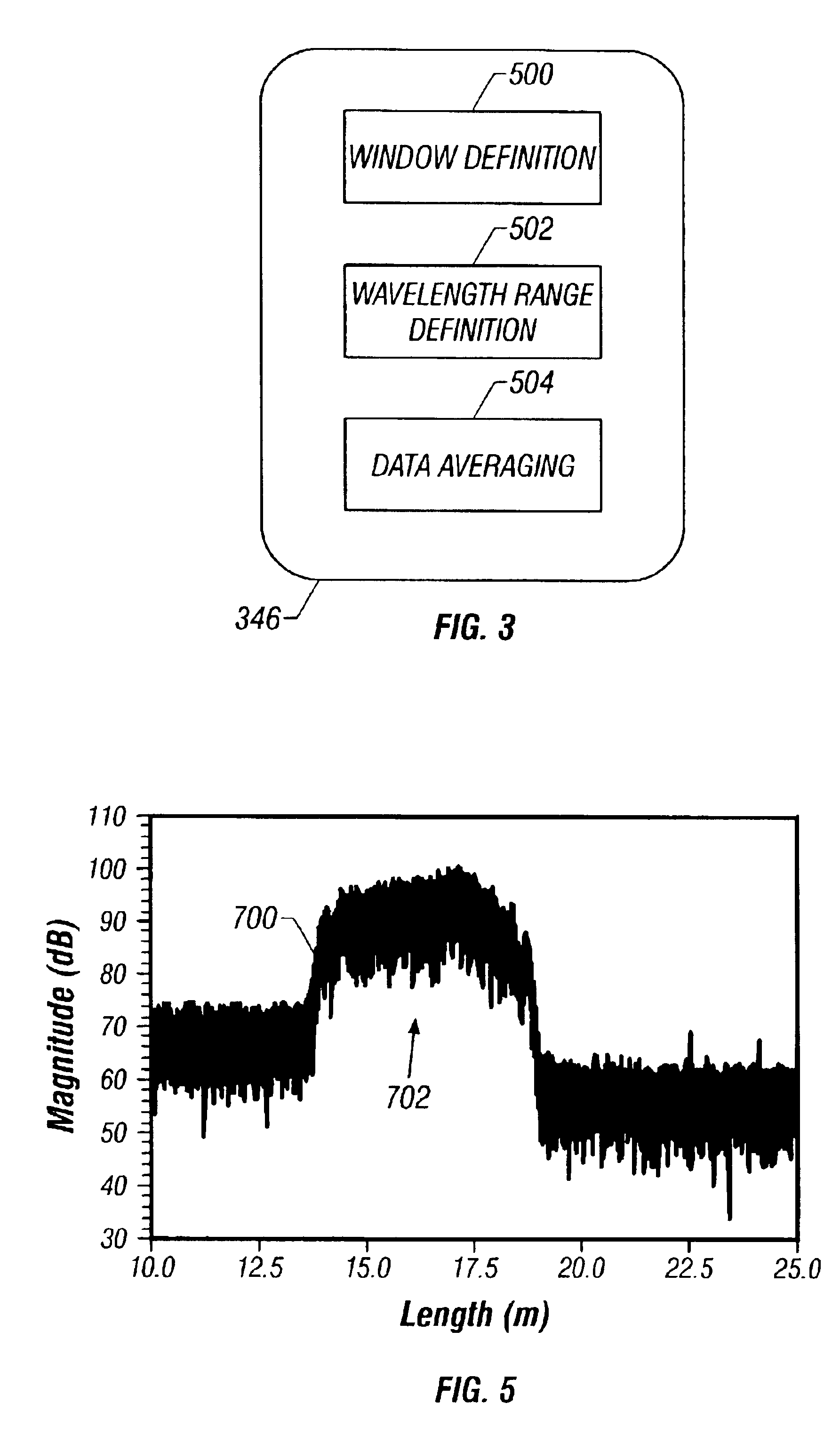De-embedment of optical component characteristics and calibration of optical receivers using rayleigh backscatter
a technology of optical components and characteristics, applied in the field of deeming optical components, can solve the problems of difficult to determine the difference in the level of rbs from one side of the optical component to the other, and cannot be directly measured optical component characteristics such as connector loss, etc., to achieve precise analysis of the optical device, improve the accuracy of rbs measurements, and increase the number of data points available for averaging
- Summary
- Abstract
- Description
- Claims
- Application Information
AI Technical Summary
Benefits of technology
Problems solved by technology
Method used
Image
Examples
Embodiment Construction
[0024]Embodiments of the invention provide a system and method for making more accurate optical component characteristic measurements using RBS The optical component characteristics can then be de-embedded from optical device measurements to provide a more precise analysis of the optical device. The accuracy of the optical component characteristic measurements can be improved by improving the accuracy of the RBS measurements. The accuracy of the RBS measurements, in turn, can be improved by frequency domain averaging of the RBS within a predefined window on both sides of the optical component. The averaged RBS may then be used to more precisely determine the RBS level on either side of the optical component In some embodiments of the invention, the averaging windows can be expanded in order to increase the number of data points available for averaging. In some embodiments of the invention, the number of data points available for averaging can be increased by expanding the sweep wave...
PUM
 Login to View More
Login to View More Abstract
Description
Claims
Application Information
 Login to View More
Login to View More - R&D
- Intellectual Property
- Life Sciences
- Materials
- Tech Scout
- Unparalleled Data Quality
- Higher Quality Content
- 60% Fewer Hallucinations
Browse by: Latest US Patents, China's latest patents, Technical Efficacy Thesaurus, Application Domain, Technology Topic, Popular Technical Reports.
© 2025 PatSnap. All rights reserved.Legal|Privacy policy|Modern Slavery Act Transparency Statement|Sitemap|About US| Contact US: help@patsnap.com



